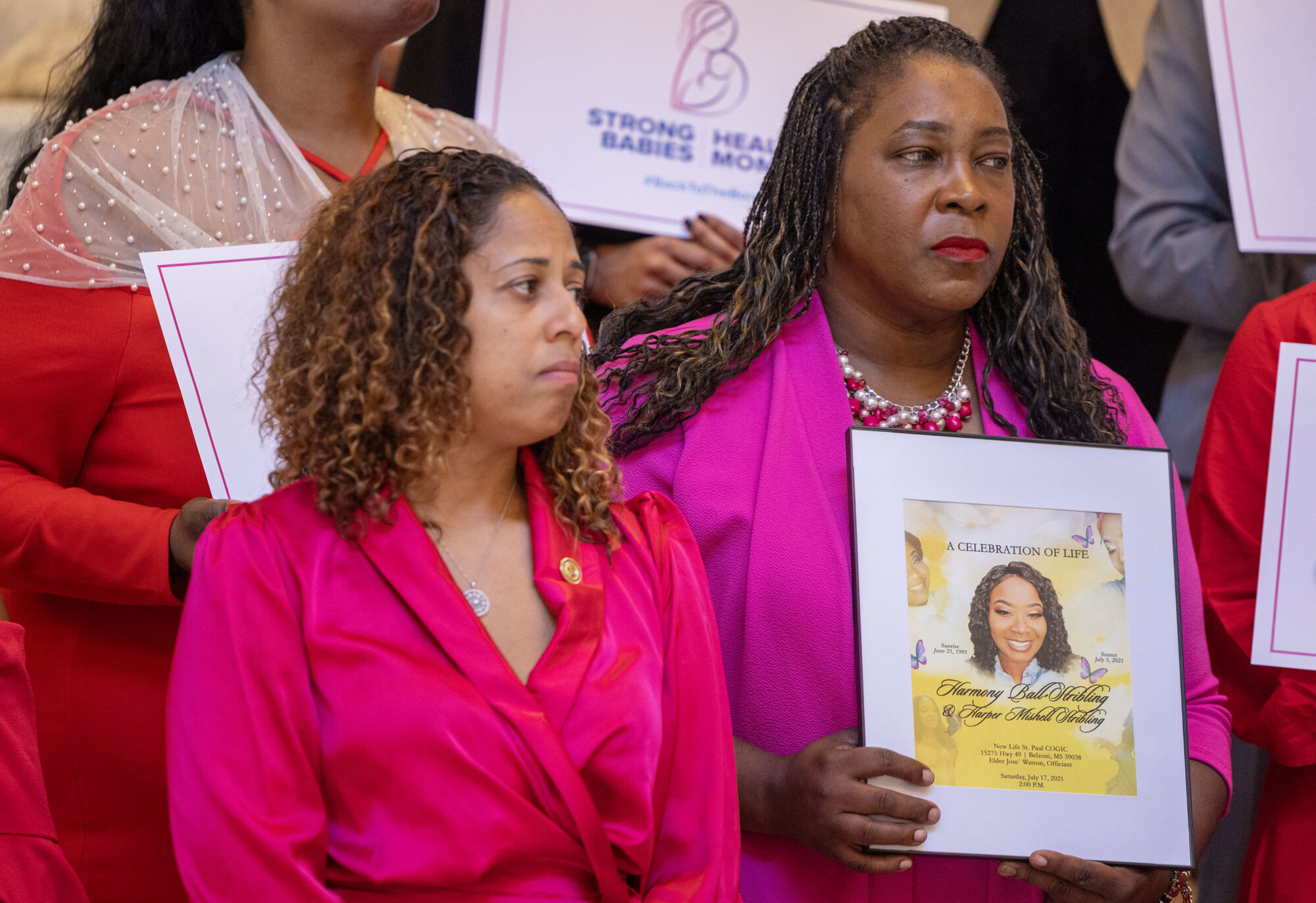Mississippi Today
Job opening: Community Health Reporter


The Community Health Reporter will be a cornerstone member of our health team, which serves Mississippians with access to data, fact-finding and dissemination of in-depth and explainer public health journalism. This team reports on how the health care system works, and in many cases does not, for Mississippians. We dig deep on how health care providers, hospitals, insurers, governments and consumers are interconnected and impacted, with an eye for equity and access. Our readership includes thought leaders and everyday Mississippians who need accurate and easy-to-understand information on public health matters.
The ideal journalist will be someone who understands the health care considerations of rural and suburban Mississippians alike. This candidate will serve on a four-person team to focus on daily/breaking news stories as well as deeper-dive investigative features, to explore our state’s complicated public health framework and bring some much-needed transparency to its processes.
Mississippi is a gold mine for eager journalists. In this position, you’ll travel the state and meet a diverse range of residents. Between the state’s abortion ban that ultimately led the highest court in the nation to strike down Roe v. Wade, a massive insurance dispute between the state’s largest hospital and largest insurer, an ongoing political battle over Medicaid expansion, and the state’s long-standing, poor public health outcomes, the stories to be told here are limitless.
Expectations:
- Work with a small team of journalists who are focused solely on health in Mississippi.
- Develop your own health story ideas as well as collaborate closely with a small team of like-minded journalists
- Get people to talk, finding willing sources and protect them while telling sensitive and timely stories
- Build trust: Many people who have been impacted by poor health services in Mississippi have been victims of predatory actions from other journalists or media outlets. This will require empathy, patience and savvy.
- Work with our Audience Team and data and visual journalists to create compelling story presentations.
It’s a plus if you have:
- Mississippi reporting experience
- Experience writing a combination of both longform stories and investigations
- A demonstrated ability to work quickly under tight deadlines
- A knowledge and understanding of nonprofit journalism
- Experience working in a collaborative newsroom setting
What you’ll get:
- The opportunity to work alongside award-winning journalists and make significant contributions to Mississippi’s only fully staffed, nonprofit, nonpartisan digital news and information source.
- Highly competitive salary with medical insurance, and options for vision and dental insurance.
- 29 days paid time off.
- Up to 12 weeks of parental family leave, with return-to-work flexibility.
- Simple IRA with 3 percent company matching. Group-term life insurance provided to employees ($15,000 policy).
- Support for professional training and attending industry conferences.
How to Apply:
We’re committed to building an inclusive newsroom that represents the people and communities we serve. We especially encourage members of traditionally underrepresented communities to apply for this position, including women, people of color, LGBTQ people and people who are differently abled.
This article first appeared on Mississippi Today and is republished here under a Creative Commons license.
Did you miss our previous article…
https://www.biloxinewsevents.com/?p=323254
Mississippi Today
On this day in 1947, Jackie Robinson broke MLB color barrier

April 15, 1947

Jackie Robinson broke through the color barrier in Major League Baseball, becoming the first Black player in the 20th century.
Born in Cairo, Georgia, Robinson lettered in four sports at UCLA – football, basketball, baseball and track. After time in the military, he played for the Kansas City Monarchs in the Negro Leagues. After his success there, Dodgers general manager Branch Rickey signed Robinson, and the legendary baseball player started for Montreal, where he integrated the International League.
In addition to his Hall of Fame career, he was active in the civil rights movement and became the first Black TV analyst in Major League Baseball and the first Black vice president of a major American corporation.
In recognition of his achievements, Robinson was posthumously awarded the Presidential Medal of Freedom and the Congressional Gold Medal.
Major League Baseball retired his number “42,” which became the title of the movie about his breakthrough.
Ken Burns’ four-hour documentary reveals that Robinson did more than just break the color barrier — he became a leader for equal rights for all Americans.
This article first appeared on Mississippi Today and is republished here under a Creative Commons Attribution-NoDerivatives 4.0 International License.![]()
Mississippi Today
Mississippians highlight Black Maternal Health Week

Advocates and health care leaders joined lawmakers Monday morning at the Capitol to recognize Black Maternal Health Week, which started Friday.
The group was highlighting the racial disparities that persist in the delivery room, with Black women three times more likely to die of a pregnancy-related cause than white women.
“The bond between a mother and her baby is worth protecting,” said Cassandra Welchlin, executive director of the Mississippi Black Women’s Roundtable.
Rep. Timaka James-Jones, D-Belzoni, spoke about her niece Harmony, who suffered from preeclampsia and died on the side of the road in 2021 along with her unborn baby, three miles from the closest hospital in Yazoo City.
“It’s utterly important that stories are shared – but realize these are not just stories. This is real life,” she said.
The tragedy inspired James-Jones to become a lawmaker. She says she is working on gaining support to appropriate the funds needed to build a standalone emergency room in Belzoni.
But it isn’t just emergency medical care that’s lacking for some mothers. Mental health conditions are a leading cause of pregnancy-related deaths, defined as deaths up to one year postpartum from associated causes.
And more than 80% of pregnancy-related deaths are deemed preventable – making the issue ripe for policy change, advocates said.
“About 20 years ago, I was almost a statistic,” said Lauren Jones, a mother who founded Mom.Me, a nonprofit seeking to normalize the struggles of motherhood through community support. “I contemplated taking my life, I severely suffered from postpartum depression … None of my physicians told me that the head is connected to the body while pregnant.”
With studies showing “mounting disparities” in women’s health across the United States – and Mississippi scoring among the worst overall – more action is needed to halt and reverse the inequities, those at the press conference said.
The Mississippi Legislature passed four bills related to maternal health between 2018 and 2023, according to a study by researchers at the University of Mississippi Medical Center.
“How many times are we going to have to come before committees like this to share the statistics before the statistics become a solution?” Jones asked.
A bill that would require health care providers to offer postpartum depression screenings to mothers is pending approval from the governor.
Rep. Zakiya Summers, D-Jackson, the organizer of the press conference, commended the Legislature for passing presumptive eligibility for pregnant women this year. The policy will allow women to receive health care covered by Medicaid as soon as they find out they are pregnant – even if their Medicaid application is still pending. It was spearheaded by Rep. Missy McGee, R-Hattiesburg.
Summers also thanked Rep. Kevin Felsher, R-Biloxi, for pushing paid parental leave for state employees through the finish line this year.
Speakers emphasized the importance of focusing Black Maternal Health Week not just on mitigating deaths but on celebrating one of life’s most vulnerable and meaningful events.
“Black Maternal Health Week is a celebration of life, since Black women don’t often get those opportunities to celebrate,” said Nakeitra Burse, executive director of Six Dimensions, a minority women-owned public health research agency. “We go into our labor and delivery and pregnancy with fear – of the unknown, fear of how we’ll be taken care of, and just overall uncertainty about the outcomes.”
This article first appeared on Mississippi Today and is republished here under a Creative Commons Attribution-NoDerivatives 4.0 International License.![]()
Mississippi Today
Trump to appoint two Northern District MS judges after Aycock takes senior status

President Donald Trump can now appoint two new judges to the federal bench in the Northern District of Mississippi.
U.S. District Judge Sharion Aycock announced recently that she was taking senior status effective April 15. This means she will still hear cases as a judge but will have a reduced caseload.
“I have been so fortunate during my entire legal career,” Aycock said in a statement. “As one of only a few women graduating in my law school class, I had the chance to break ground for the female practitioner.”
A native of Itawamba County, Aycock graduated from Tremont High School and Mississippi State University. She received her law degree from Mississippi College, where she graduated second in her class.
Throughout her legal career, she blazed many trails for women practicing law and female jurists. She began her career as a judge when she was elected as a Mississippi Circuit Court judge in northeast Mississippi in 2002, the first woman ever elected to that judicial district.
She held that position until President George W. Bush in 2007 appointed her to the federal bench. After the U.S. Senate unanimously confirmed her, she became the first woman confirmed to the federal judiciary in Mississippi.
This makes Aycock the second judge to take senior status in four years. U.S. District Judge Michael Mills announced in 2021 that he was taking senior status, but the U.S. Senate still has not confirmed someone to replace him.
President Joe Biden appointed state prosecutor Scott Colom to fill Mills’ vacancy in 2023. U.S. Sen. Roger Wicker approved Colom’s appointment, but U.S. Sen. Cindy Hyde-Smith blocked his confirmation through a practice known as “blue slips,” where senators can block the confirmation of judicial appointees in their home state.
This means President Trump will now have the opportunity to appoint two federal judges to lifetime appointments to the Northern District. U.S. District Judge Debra Brown will soon be the only active federal judge serving in the district. Aycock, Mills, and U.S. District Judge Glen Davidson will all be senior-status judges.
Federal district judges provide crucial work to the federal courts through presiding over major criminal and civil trials and applying rulings from the U.S. Supreme Court and the U.S. Court of Appeals in the local districts.
This article first appeared on Mississippi Today and is republished here under a Creative Commons Attribution-NoDerivatives 4.0 International License.![]()
-

 News from the South - Arkansas News Feed6 days ago
News from the South - Arkansas News Feed6 days agoMeasles cases confirmed in Arkansas children after travel exposure
-

 Mississippi Today7 days ago
Mississippi Today7 days agoProgram helps students with disabilities forge paths to careers
-

 News from the South - North Carolina News Feed7 days ago
News from the South - North Carolina News Feed7 days agoTax Day of April 15 is essentially May 1 in North Carolina | North Carolina
-

 News from the South - Texas News Feed7 days ago
News from the South - Texas News Feed7 days agoKSAT's Patty Santos speaks with Poteet Strawberry Festival court members, organization VP
-

 News from the South - Missouri News Feed7 days ago
News from the South - Missouri News Feed7 days agoSleeping 14-year-old critically injured by bullet in Ferguson home; father flees scene
-

 Mississippi Today6 days ago
Mississippi Today6 days agoA self-proclaimed ‘loose electron’ journeys through Jackson’s political class
-

 News from the South - Alabama News Feed5 days ago
News from the South - Alabama News Feed5 days agoImpacts of Overdraft Fees | April 11, 2025 | News 19 at 10 p.m.
-

 News from the South - Alabama News Feed6 days ago
News from the South - Alabama News Feed6 days agoPilot Speaks on Helicopter Crash | April 10, 2025 | News 19 at 10 p.m.

















































